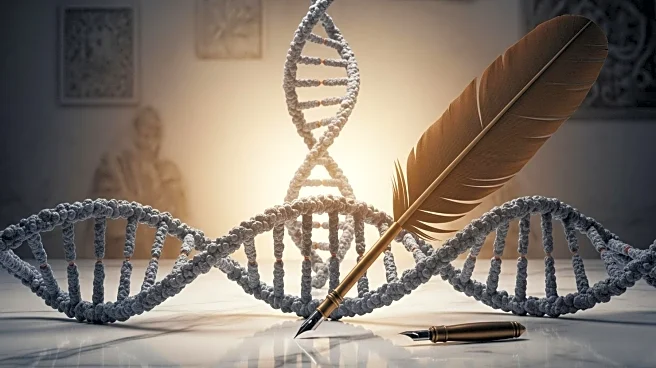What is the story about?
What's Happening?
The Leonardo DNA Project has made significant progress in tracing the genetic lineage of Leonardo da Vinci, confirming the existence of male-line descendants. Researchers Alessandro Vezzosi and Agnese Sabato have published a comprehensive genealogical study, identifying 15 direct male-line descendants linked to Leonardo's father and half-brother. DNA tests on these descendants revealed shared Y chromosome segments, indicating genetic continuity for at least 15 generations. The project, coordinated by The Rockefeller University, involves international collaboration to potentially recover Leonardo's DNA from ancient remains and artifacts. Excavations at a Da Vinci family tomb in Vinci are underway, with preliminary findings suggesting the presence of male remains consistent with Leonardo's relatives.
Why It's Important?
This project holds the potential to unlock new insights into Leonardo da Vinci's life, including his health, creativity, and possibly the causes of his death. By reconstructing his genetic profile, researchers aim to understand the biological roots of his extraordinary abilities. The findings could also validate historical records and genealogical reconstructions, offering a deeper understanding of Leonardo's family history. The project exemplifies the intersection of history and modern science, pushing the boundaries of what can be known about historical figures through genetic research.
What's Next?
Further analyses are planned to determine the preservation of DNA in the recovered remains, which could allow for a comparison with the genetic material of living descendants. If successful, this could lead to a more comprehensive reconstruction of Leonardo's DNA. The project also plans to conduct scientific analysis and restoration of a newly discovered drawing attributed to Leonardo, potentially offering additional insights into his work and techniques.
Beyond the Headlines
The project raises questions about the ethical implications of genetic research on historical figures, including privacy concerns for living descendants. It also highlights the potential for genetic studies to reshape our understanding of history and cultural heritage, offering a new dimension to the study of influential figures like Leonardo da Vinci.
















